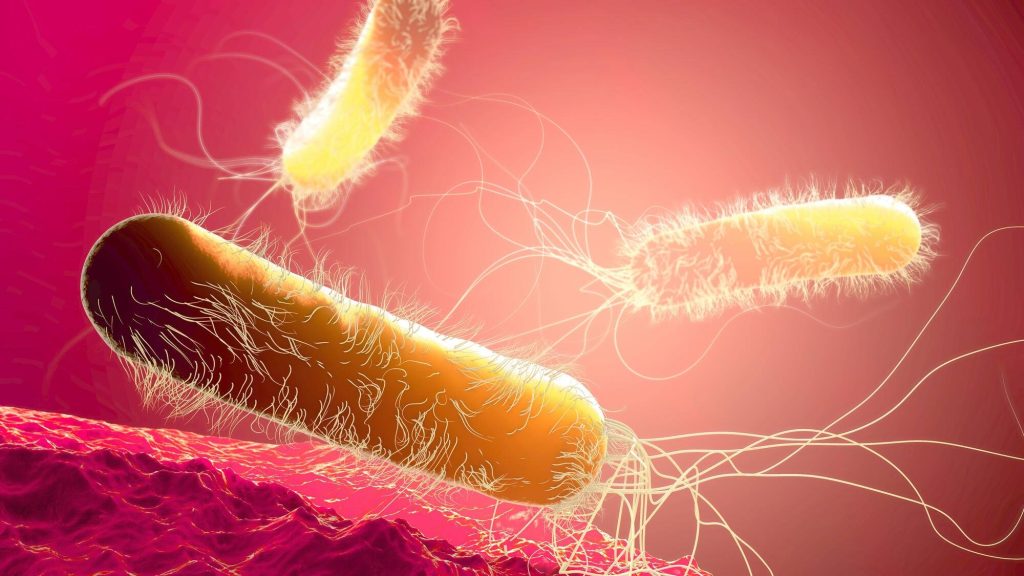Diagnosis
Your doctor may order lab work or imaging scans to help determine what's causing your symptoms.
Laboratory tests
Many infectious diseases have similar signs and symptoms. Samples of body fluids can sometimes reveal evidence of the particular microbe that's causing the illness. This helps the doctor tailor treatment.
- Blood tests. A technician obtains a sample of blood by inserting a needle into a vein, usually in the arm.
- Urine tests. This painless test requires you to urinate into a container. To avoid potential contamination of the sample, you may be instructed to cleanse your genital area with an antiseptic pad and to collect the urine midstream.
- Throat swabs. Samples from the throat, or other moist areas of the body, may be obtained with a sterile swab.
- Stool sample. You may be instructed to collect a stool sample so a lab can check the sample for parasites and other organisms.
- Spinal tap (lumbar puncture). This procedure obtains a sample of the cerebrospinal fluid through a needle carefully inserted between the bones of the lower spine. You'll usually be asked to lie on your side with your knees pulled up toward your chest.
Imaging scans
Imaging procedures — such as X-rays, computerized tomography and magnetic resonance imaging — can help pinpoint diagnoses and rule out other conditions that may be causing symptoms.
Biopsies
During a biopsy, a tiny sample of tissue is taken from an internal organ for testing. For example, a biopsy of lung tissue can be checked for a variety of fungi that can cause a type of pneumonia.
Treatment
Knowing what type of germ is causing your illness makes it easier for your doctor to choose appropriate treatment.
Antibiotics
Antibiotics are grouped into "families" of similar types. Bacteria also are put together in groups of similar types, such as streptococcus or E. coli.
Certain types of bacteria are especially susceptible to particular classes of antibiotics. Treatment can be targeted more precisely if your doctor knows what type of bacteria you're infected with.
Antibiotics are usually reserved for bacterial infections, because these types of drugs have no effect on illnesses caused by viruses. But sometimes it's difficult to tell which type of germ is at work. For example, pneumonia can be caused by a bacterium, a virus, a fungus or a parasite.
The overuse of antibiotics has resulted in several types of bacteria developing resistance to one or more varieties of antibiotics. This makes these bacteria much more difficult to treat.
Antivirals
Drugs have been developed to treat some, but not all, viruses. Examples include the viruses that cause:
- HIV/AIDS
- Herpes
- Hepatitis B
- Hepatitis C
- Influenza
Antifungals
Topical antifungal medications can be used to treat skin or nail infections caused by fungi. Some fungal infections, such as those affecting the lungs or the mucous membranes, can be treated with an oral antifungal. More-severe internal organ fungal infections, especially in people with weakened immune systems, may require intravenous antifungal medications.
Anti-parasitics
Some diseases, including malaria, are caused by tiny parasites. While there are drugs to treat these diseases, some varieties of parasites have developed resistance to the drugs.
Clinical trials
Explore Mayo Clinic studies testing new treatments, interventions and tests as a means to prevent, detect, treat or manage this condition.
Self care
Many infectious diseases, such as colds, will resolve on their own. Drink plenty of fluids and get lots of rest.
Alternative medicine
A number of products have claimed to help fend off common illnesses, such as the cold or flu. While some of these substances have appeared promising in early trials, follow-up studies may have had conflicting or inconclusive results. More research needs to be done.
Some of the substances that have been studied for preventing or shortening the duration of infection include:
- Cranberry
- Echinacea
- Garlic
- Ginseng
- Goldenseal
- Vitamin C
- Vitamin D
- Zinc
Check with your doctor before trying any products that promise to boost your immune system or chase colds and other illnesses away. Some of these products may cause allergic reactions or interact adversely with other medications you may be taking.
Preparing for your appointment
You'll probably first see your primary care doctor. Depending on the severity of your infection, as well as which of your organ systems is affected by the infection, your doctor may refer you to a specialist. For example, a dermatologist specializes in skin conditions, and a pulmonologist treats lung disorders.
What you can do
You may want to write a list that includes:
- Detailed descriptions of your symptoms
- Information about medical problems you've had
- Information about your parents' or siblings' medical problems
- All the medications and dietary supplements you take
- Questions you want to ask the doctor
Preparing a list of questions for your doctor will help you make the most of your time together. For infectious diseases, some basic questions to ask your doctor include:
- What's the most likely cause of my symptoms?
- Are there other possible causes for my symptoms?
- What kinds of tests do I need?
- Is my condition likely temporary or long lasting?
- What treatment do you recommend?
- I have other health conditions. How can I best manage these conditions together?
- Is there a generic alternative to the medicine you're prescribing?
- Are there any brochures or other printed material that I can take home with me? What websites do you recommend?
What to expect from your doctor
Your doctor is likely to ask you a number of questions, including:
- When did your symptoms begin?
- Do your symptoms come and go, or do you have symptoms all the time?
- How severe are your symptoms?
- Have you recently come into contact with anyone who's sick?
- Have you been bitten or scratched by an animal or come into contact with animal feces?
- Do you have any insect bites?
- Have you eaten undercooked meat or unwashed vegetables?
- Have you been out of the country recently?






